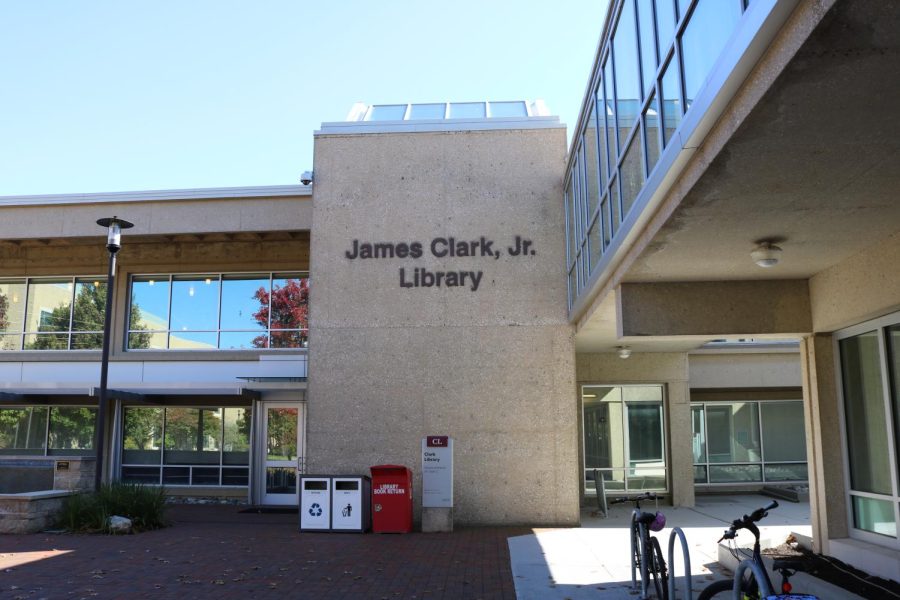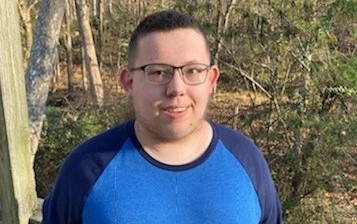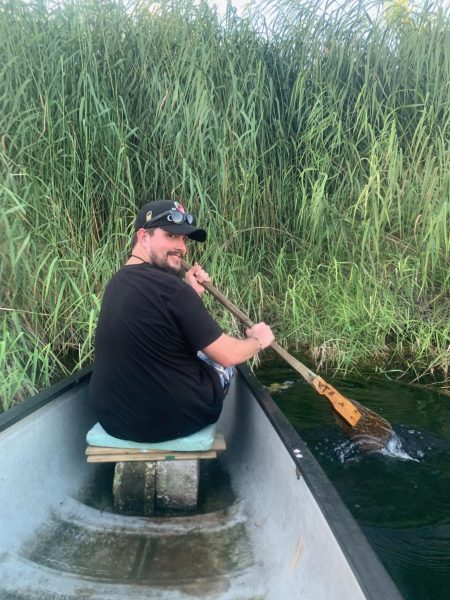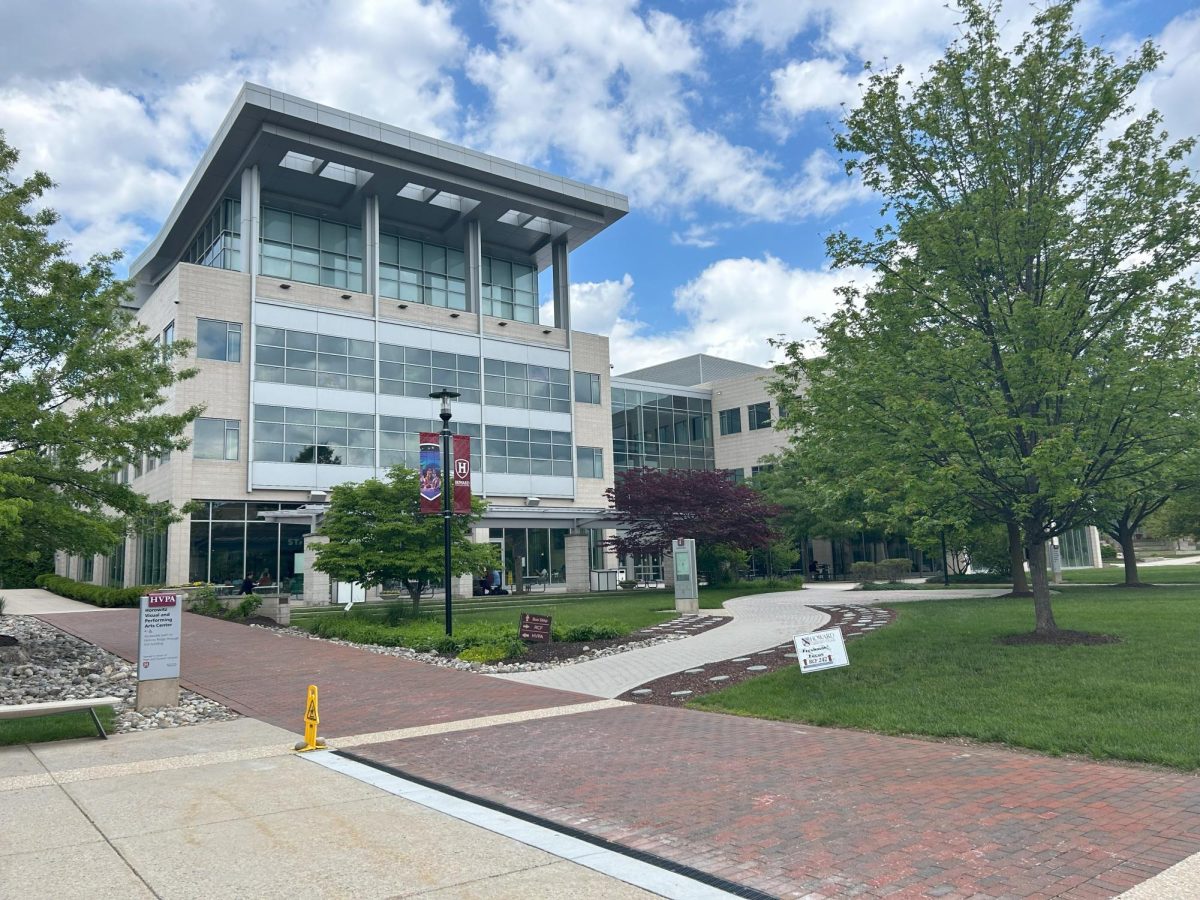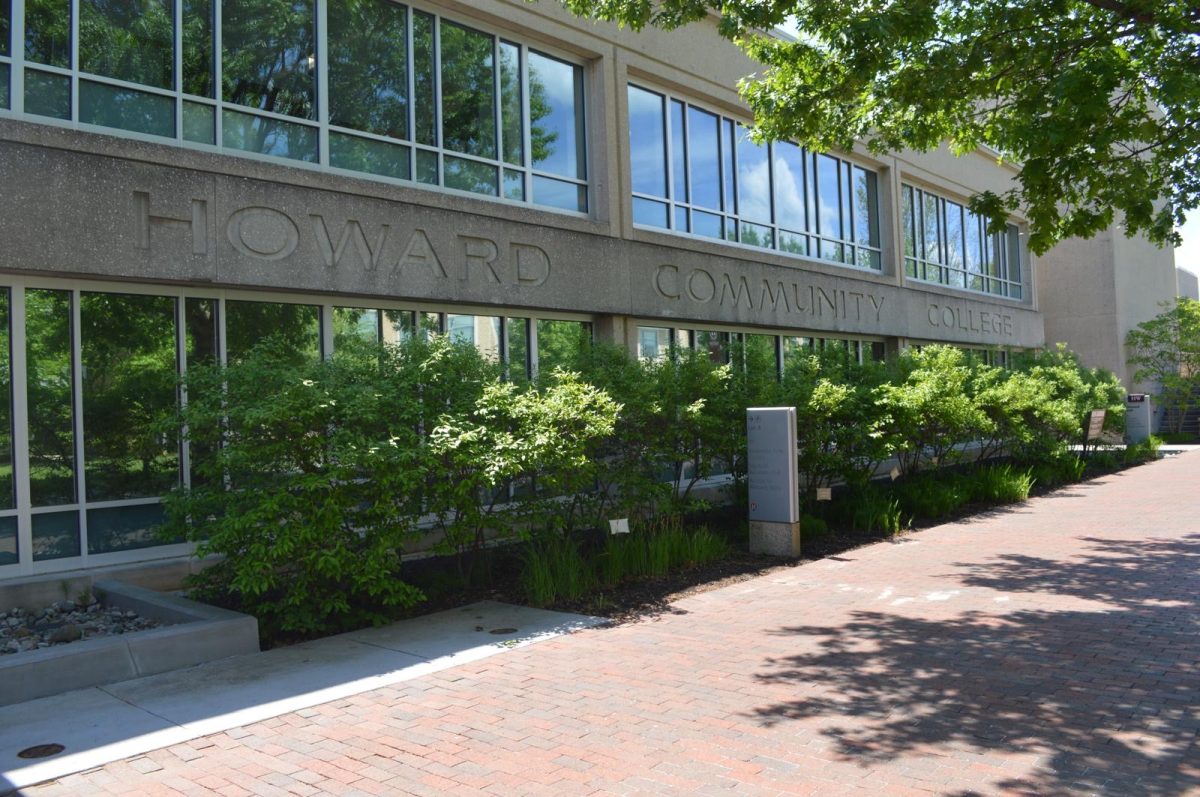A Day At The Clark Library
The James Clark, Jr. Library at HCC shot from the HCC Quad
September 29, 2022
A student needs help with a homework assignment, or maybe they just want to relax. They could visit the Rouse Company Foundation Student Services Hall, which has the Learning Assistance Center, but not many classes are held there. The better option is to visit the library in the Academic Commons—which has the Galleria and is the main building on campus—attached to Howard Hall and McCuan Hall.
When you first walk in, one of the first people you will likely meet is Circulation and Access Services Manager Tiffany Brown, who works at the front desk. She can assist students with things they need to get done in the library. “On a typical day, I am usually at the front desk helping students and staff members. I also train, recruit and schedule. I do a lot,” Brown says. “The only thing I don’t do is deal with the library. I do everything besides reference.”
On the reference side is Richard Black-Howell, the user experience librarian. Black-Howell deals with outreach and helps manage the circulation staff. “We have resources, spaces and services,” Black-Howell says. “We have all kinds of services to help students do their research—help them do it more efficiently and quicker. And if they have any questions, we’re available in person or on live chat seven days a week.”
Black-Howell reaches out to the different faculty branches to increase their partnerships. In addition, he reaches out to other groups such as veterans and at community events to promote the library’s services.
As Director of the HCC Library and Learning Commons, Nana Owusu-Nkwantabisa acts as a liaison between the HCC library and community organizations like the Howard County Center of African American Culture or the Howard County Poetry and Literature Society. Owusu also serves on the Maryland Public Library Board.
“The library plays an active part in the family of academic libraries. So we have a family of community college libraries. Then there were the academic libraries. And we are members of fraternities, organizations,” Owusu says. “I used to be the President of Community Colleges Consortium, and I’m currently the president of the all the academic libraries’ group.”
If you think HCC’s library is small, you are not alone. Not only does it have only one floor, but, according to Owusu, it is one of the smallest libraries in Maryland.
“We would like to be collocated with the tutoring services, or at least in proximity,” Owusu says. “The library has always been called the center or the heart of the campus, and for good reason. This is true: physically, most libraries in most colleges are in the middle of the campus—it can be easily accessed. However, we’re located at the tail end of the Quad.” Owusu says.
Owusu has expressed his desire to be involved in the Facilities Master Plan so that such a change could be ratified. When the time comes that the library goes under construction, they have a database called Overdrive, which can be accessed through the Libby app. The app is simple to use and is available 24/7.
“It is as simple as downloading the app onto your phone—you get into our library and it’s got this colorful display of books. You click on the book you want to read; it will ask you if you want to borrow it; you enter your HCC credentials and immediately it’s checked out to you,” Owusu explains.
Anyone who lives in Howard County can visit HCC’s library as if it were a public library. To check out a book, you will need some form of ID. If you are a student, you should show your student ID, whereas if you are a Howard County resident, you can show your state ID.
“We’re here to help people find their better tomorrows, seven days a week,” Black-Howell says. “They can define the need, whatever they want. The spaces, the resources, the services, the course materials, all of it. We encourage people to come on in and then see and ask us any questions they have. Whether it’s in person, or on chat. And then we’ll see how we can best help them.”


